Rising Temperatures and Extreme Heat:
MAPC Projects
Summer temperatures in the Metro Boston area are increasing, along with extreme temperature events like heat waves (defined as days over 90 degrees). 2020 marked the hottest summer globally, with 14 days over 90 degrees in Boston. By the 2030s, scientists predict we could more than double that and have 41 days of 90 degrees due to climate change.
Read more about:
Despite these challenges, municipalities, communities, and individuals can proactively prepare for rising temperatures by increasing access to cooling resources, implementing policies and projects to reduce urban heat islands, improving healthy housing, and making deep investments to cut greenhouse gas emissions.
MAPC is creating resources, conducting research, and working with cities and towns on extreme heat issues. Below, find a list of our extreme heat-related projects and pages:
Upcoming Events:
Latest news:
Report Release: "Cool it with Art: A How-to Guide for Tackling Rising Temperatures with Art in Our Communities." Read more.
Survey: How Do You Experience Heat?
What do you do during a heat wave? What do you know about extreme heat? How do you cool down? We want to hear how people in the region experience extreme heat. Take the survey here: it should only take seven to 12 minutes!
Heat Preparedness Week
Greater Boston's inaugural Heat Prep Week took place from May 24 to May 28, 2021. Municipalities, organizations, and individuals joined us in highlighting extreme heat, how we're impacted by climate change, and what communities and individuals can do to protect themselves and stay cool.
Many of the messages about extreme heat that we shared during heat prep week will be relevant all summer! Download our social media toolkit to help spread the word!
Our Heat-Related Projects
Keep Cool Somerville
Keep Cool Somerville is an initiative to improve community resilience to extreme heat. The project began in 2020 as a collaboration between the City of Somerville and MAPC to address the health impacts of climate change. In 2020, we conducted stakeholder interviews, a PhotoVoice project with resident participants, resident focus groups, and a public survey to understand how extreme heat affects Somerville residents. In 2021, the initiative will build on research and earlier community engagement to support community solutions to address heat.
Metro Mayors: Building Resilience to Climate-Driven Heat
The 15 communities of the Metro Mayors Coalition (MMC) are working with MAPC to plan and prepare for climate change-induced increases to summer heat as well as extreme heat events. The MMC Climate Taskforce received a Municipal Vulnerability Preparedness Action grant from the Massachusetts Office of Energy and Environmental Affairs to conduct a two-year planning process for the region. The resulting plan will provide a roadmap of priority actions in addressing both public health concerns, as well as long-term solutions to reducing urban heat islands. Stay tuned to learn more!
COVID-Safe Cooling
In summer of 2020, MAPC and the Mystic River Watershed Association launched the “COVID-Safe Cooling Strategies” program with emergency funding provided by the Barr Foundation.
The program provides funding and technical assistance to mitigate extreme heat impacts in seven communities most impacted by both COVID-19 and extreme heat: Boston, Brockton, Chelsea, Everett, Lawrence, Lynn, and Revere.
COVID-Safe Cooling grants fund direct cooling relief, support efforts to build equitable, resilient community support systems, and help communities invest in strategies that will protect residents from extreme temperatures in the long-term. In addition to the grant funding, MAPC and MyRWA provide technical assistance to grantees, including support with purchasing, communications, providing resources in multiple languages, and one-on-one help to troubleshoot challenges.
Resources
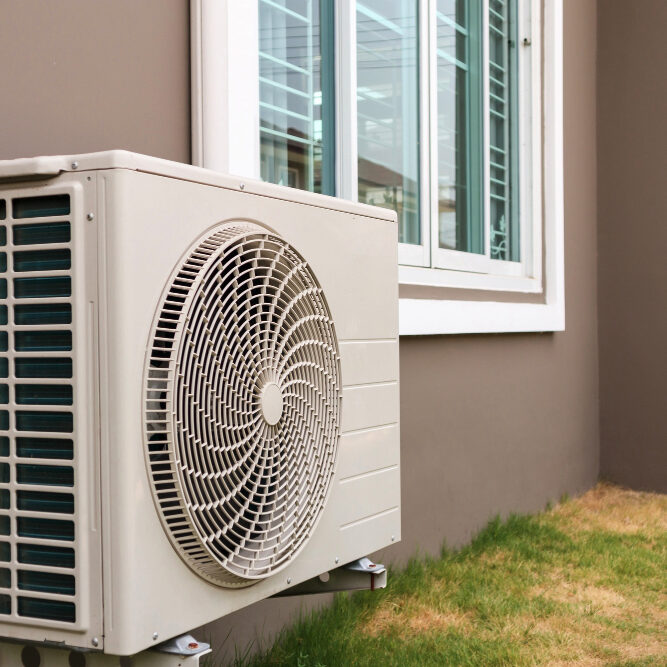
Extreme Heat Resources
MAPC has researched and worked with local, state, and national organizations to build a consolidated Extreme Heat Resources webpage, which outlines cooling strategies for communities, resources for residents, resources for municipalities, and emergency tips. This resources page debuted in July 2020 and is built to address greater Boston’s current heat challenges. During the COVID pandemic, it includes strategies for COVID-safe cooling.
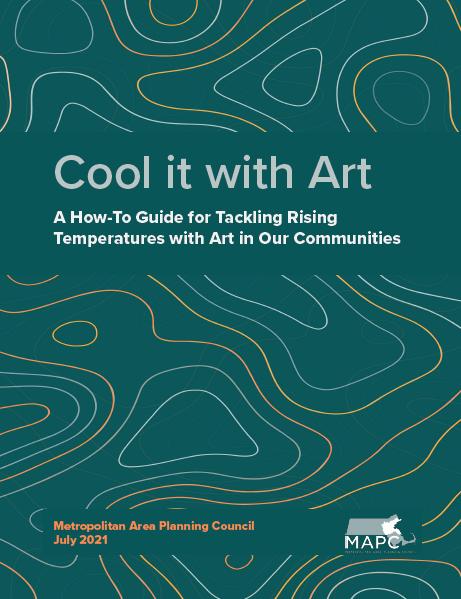
Cool it with Art:
A How-to Guide for Tackling Rising Temperatures with Art in Our Communities
Collaborations with artists and creatives can enhance resilience to all types of climate hazards, from flooding to hurricanes to extreme heat, by transforming infrastructure into art, increasing community awareness of preparedness activities, and enhancing local knowledge of climate risk.
This Guide contains information, examples, resources, and practical guidance on how local governments, community-based organizations, and artists can partner to address climate-driven extreme heat impacts.
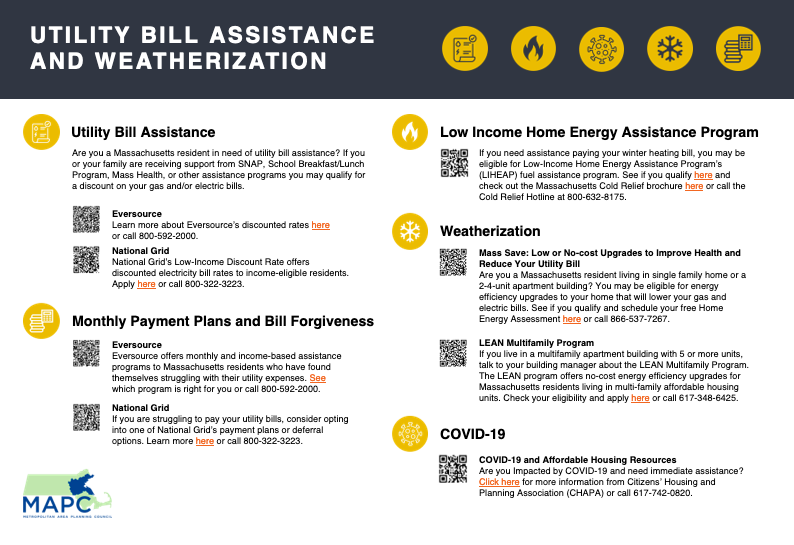
Utility Assistance One-Pagers
Municipalities can use this handout to share information on utility assistance with their residents. No need to ask MAPC's permission: just download and print! We've provided them in PowerPoint format so you can add your municipal logo or make other changes to make the resource more relevant to your community.
Click the links below to download the resource in different languages:
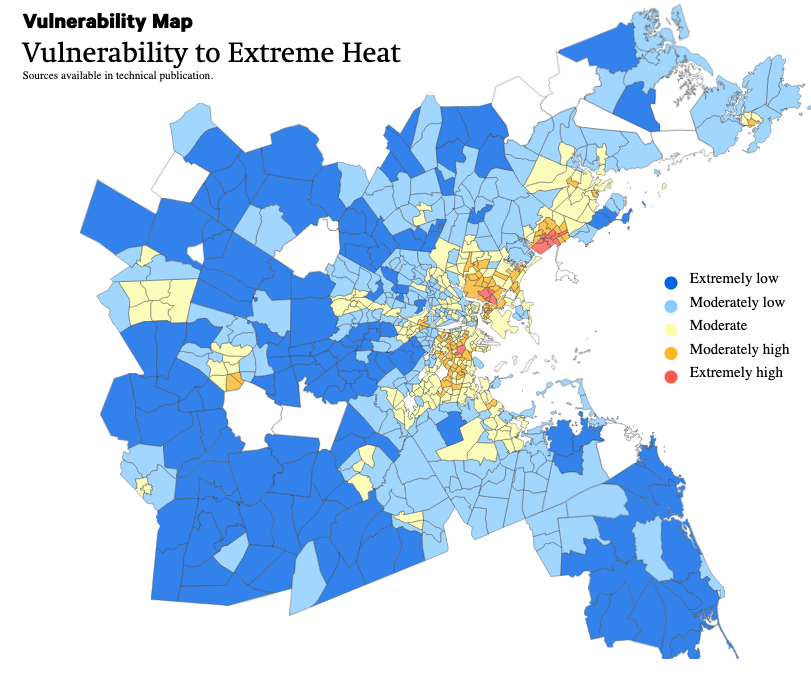
Climate Vulnerability in Greater Boston
A group’s exposure to climate hazards, access to resources, and ability to plan for and rebuild after a climate event all factor into a group’s vulnerability to climate change. This mapping tool combines sociodemographic, public health, housing, and workforce data with climate exposure data to help identify which populations and neighborhoods are most vulnerable to the impacts of extreme heat.

Peak Demand Management
Each year, the single hour in which the electric grid experiences its highest – or peak – demand, typically occurs in the summer. This annual peak tends to correlate with high temperatures and occurs in late afternoon when buildings are using the most electricity. During times of high demand, our dirtier fuel sources come online. Facilities are also charged for electricity based on their electricity use during this annual peak hour. MAPC runs our own free Peak Electricity Demand Notification program for our municipalities to learn how to reduce demand, costs, and emissions associated with capacity charges. MAPC can also help connect you to other demand management opportunities offered by National Grid, Eversource, and ISO-New England (ISO-NE).
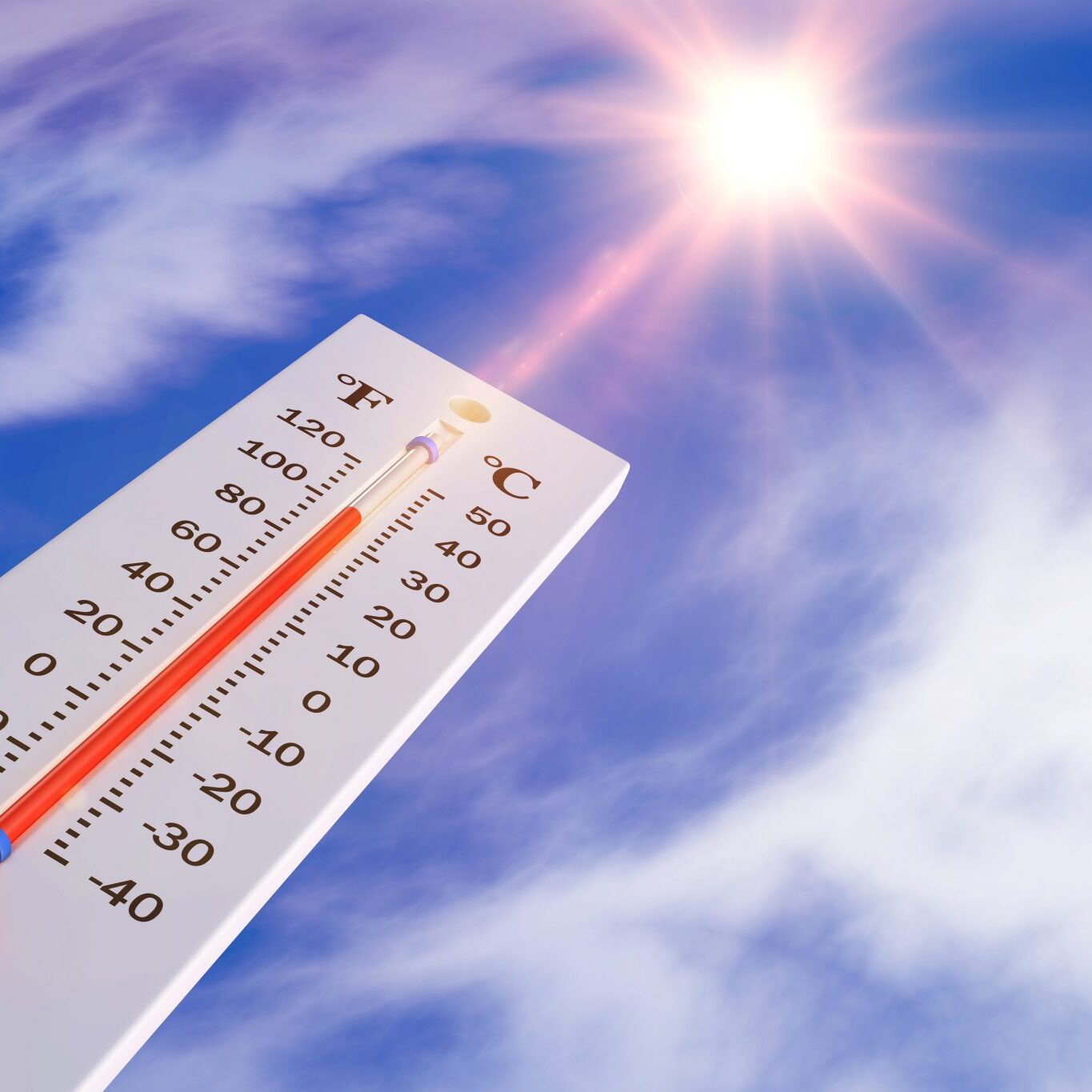
Extreme Heat Communications and Social Media Toolkit
As part of a Barr Foundation-funded project on COVID-safe cooling, MAPC created a toolkit of flyers, sample social media posts, and images that cities and towns can use to inform residents about heat risks, precautions, and resources.
